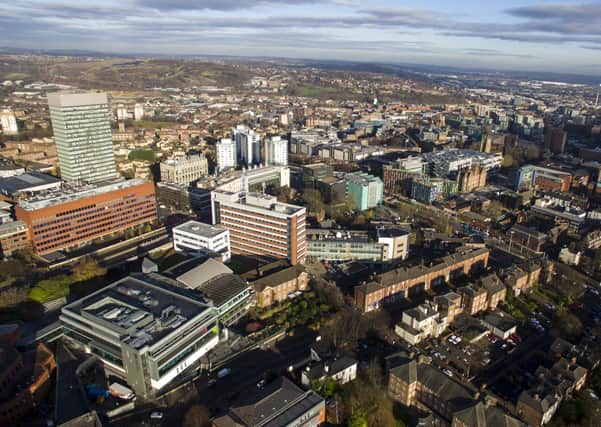Yorkshire should put wellbeing first like New Zealand – Steve Haake


There have been two consistent messages during the pandemic: firstly, take infection control seriously – wash your hands, keep your distance and wear a mask; secondly, look after your physical and mental wellbeing by doing some exercise. It might just save your life.
Directors of Public Health have for years shouted from the rooftops about the fundamentals that affect people’s health. These are not just their own behaviour – physical activity, diet, alcohol, smoking, drugs – but also wider factors such as education, jobs, security, housing and our living environment.
Advertisement
Hide AdAdvertisement
Hide AdGreg Fell, Director of Public Health for Sheffield, pointed out in 2018 that many have been left behind in the quest for economic growth, creating a vicious cycle where poor health restricts economic growth.


Take life expectancy for example: a girl born today in Yorkshire can expect to live to a ripe old age of 82. We shouldn’t feel too smug about this – her expected healthy life expectancy is only 62.
If this young girl’s cousin was born into a family living in Richmond-upon-Thames, London, then she would probably live longer to 86 and, astonishingly, have a healthy life until 72, a full decade later than her Yorkshire family member.
It’s not just the end of life either: a recent survey we did of park runners showed that 10 per cent had long-term physical and mental health conditions, with the most common being depression and anxiety. For the general population (not just park runners), the mental health charity Mind quotes Office for National Statistics data and puts one in four of us suffering from depression in any one year.
Advertisement
Hide AdAdvertisement
Hide AdHow can we expect someone to be productive if they’re not well or are depressed? What kind of society do we have where a quarter of a person’s life is blighted by ill-health?
It’s not economy or health and wellbeing – it’s about both. If there’s one thing that the pandemic has brought to the fore, it’s the importance of wellbeing and quality of life.
Some of the main reasons for the recent Covid-related impasse between some of our locally elected mayors in the North and the UK Government has been the inherent inequality between the North and South.
While this inequality might have been described primarily as an economic one, it is only a proxy for health and wellbeing and ultimately quality of life.
Advertisement
Hide AdAdvertisement
Hide AdMost plans start with a vision, move onto a strategy and then look for the outcomes that make an impact. It’s time to rethink our business plan: why not make high quality of life our vision?
We can still talk about growth, but it has to be inclusive growth. Jobs need to be quality jobs, not zero-hours with no benefits. If we’re going to invest our hard-earned money in regional schemes, invest in things that both create jobs and improve quality of life at the same time.
In the coming years, we need to invest wisely and not in the old GDP-at-any-cost way. As a small example, each one pound of investment in something as simple as community sport can create an additional three pounds in social return such as reduced healthcare costs and improved quality of life.
Investing in active travel infrastructure not only improves travel but also our physical health at the same time, another win-win situation. We should apply the same approach to all our regional interventions and take it to the logical extent of setting Wellbeing Budgets.
Advertisement
Hide AdAdvertisement
Hide AdIf you want to know what this means, look to the country which seems to have coped with the Covid-19 pandemic better than most – New Zealand.
Perhaps it’s a coincidence that in 2019 Jacinda Ardern’s government set the world’s first wellbeing budget which promised to make New Zealand “a great place to make a living and great place to make a life”.
That’s a vision for Yorkshire that I could sign up to.
Professor Steve Haake OBE is Director of Engagement at the Advanced Wellbeing Research Centre, Sheffield Hallam University. He is also Chair of the Active Travel Advisory Board for the Sheffield City Region.
Support The Yorkshire Post and become a subscriber today.
Your subscription will help us to continue to bring quality news to the people of Yorkshire. In return, you’ll see fewer ads on site, get free access to our app and receive exclusive members-only offers.
Advertisement
Hide AdAdvertisement
Hide AdSo, please - if you can - pay for our work. Just £5 per month is the starting point. If you think that which we are trying to achieve is worth more, you can pay us what you think we are worth. By doing so, you will be investing in something that is becoming increasingly rare. Independent journalism that cares less about right and left and more about right and wrong. Journalism you can trust.
Thank you
James Mitchinson
Editor
Comment Guidelines
National World encourages reader discussion on our stories. User feedback, insights and back-and-forth exchanges add a rich layer of context to reporting. Please review our Community Guidelines before commenting.